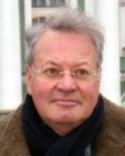
Biography:
John Hedley Brooke was educated at Cambridge University, obtaining a first class degree in the natural sciences (1965) and a doctorate for work on the history of chemistry (1969). For thirty years he taught at Lancaster University, becoming a member of the International Academy of the History of Science in 1993. In 1995, with Professor Geoffrey Cantor, he gave the Gifford Lectures at Glasgow University. From 1999 to 2006, he was the first Andreas Idreos Professor of Science & Religion at Oxford University, Director of the Ian Ramsey Centre and Fellow of Harris Manchester College. Following retirement, he has spent time as a Distinguished Fellow at the Institute of Advanced Study, University of Durham (2007). He has lectured worldwide on science & religion and in November 2001 gave the Distinguished Lecture of the History of Science Society. From 2000 to 2003 he directed the European Science Foundations Network on Science and Human Values. A former Editor of the British Journal for the History of Science, he has been President of the British Society for the History of Science, President of the Historical Section of the British Association for the Advancement of Science, and President of the UK Forum for Science & Religion. He is currently President of the International Society for Science and Religion. Among his books are Science and Religion: Some Historical Perspectives (Cambridge University Press, 1991), which won the Watson Davis Prize of the History of Science Society and a Templeton prize for outstanding books on science & religion, Thinking About Matter (Ashgate, 1995); and (with Geoffrey Cantor) Reconstructing Nature: The Engagement of Science & Religion (T & T Clark, 1998; Oxford University Press, 2000). He has also contributed to both The Cambridge Companion to Darwin and The Cambridge Companion to the Origin of Species.
Abstract:
Darwin's Voyage of Discovery: The Origins of his Theory of Evolution
How did Charles Darwin arrive at the ideas for which he became famous? His fundamental idea was that species had not been created separately but had rather derived from the modification of pre-existing forms. What was the evidence that led him to this conclusion? Darwin himself attached great importance to his experiences on a five-year voyage around the world (1831-1836) when he had the opportunity to study fossils in South America, the geographical distribution of plants and animals, and many different human societies. It was on this voyage that he also became increasingly aware of a "struggle for existence" in which individuals competed for limited resources.
Another component of his theory was the existence of variation. In a process governed by what he called "natural selection", favourable variations would tend to be preserved and could accumulate over many generations to produce a new species. How did he study variation? Why was he interested in pigeons? And which books had a decisive impact on his thinking? In this lecture I shall answer these questions and also explain why his ideas were so controversial.